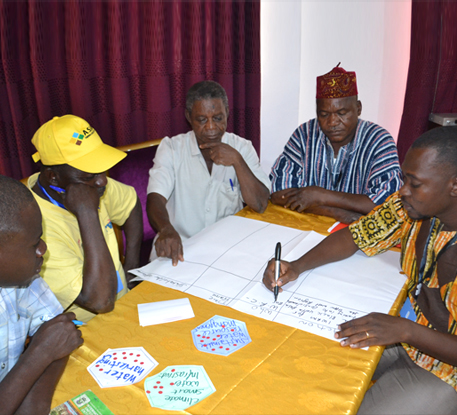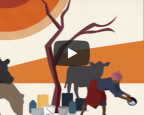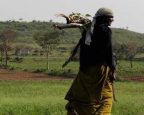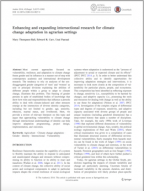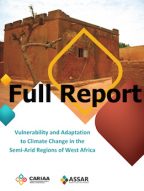From 2014 to 2018, the ASSAR program worked in semi-arid regions, with a focus on six countries in Africa (Mali, Ghana, Ethiopia, Kenya, Namibia and Botswana) and three states (Karnataka, Maharashtra and Tamil Nadu) in India. Those living in these areas face complex sets of challenges including high levels of poverty, scarce natural resources and food insecurity. Most are reliant on agriculture and livestock farming as their primary sources of food and income and are increasingly vulnerable to impacts from climate change, including changes in timing of rainfall, lengthier droughts and more frequent floods. ASSAR teams in West Africa, East Africa, Southern Africa and South Asia studied the environmental, social and political dynamics that shape these vulnerabilities, as well as the factors and conditions that enable effective adaptation.
START played two key roles within ASSAR. First, as lead for the West Africa team, START coordinated research in the region, fed back results to the wider program, and participated in the program’s steering committee. Secondly, START led ASSAR’s capacity building efforts, which included supporting training and workshops and awarding small grants to strengthen ASSAR scientists’ research and science communications skills.
Core partners in West Africa were the International Crops Research Institute for the Semi-Arid Tropics (ICRISAT) in Mali and the Institute for Environment and Sanitation Studies (IESS) at the University of Ghana. START also partnered with Michigan State University as part of their National Science Foundation (NSF) supported work that explores issues of food security in West Africa.
ASSAR was a part of the Collaborative Adaptation Research Initiative in Africa and Asia (CARIAA) , a multi-project program aimed at building resilience in climate change hot spots, supported by Canada’s International Development Research Centre (IDRC) and the United Kingdom’s Department for International Development (DFID).

